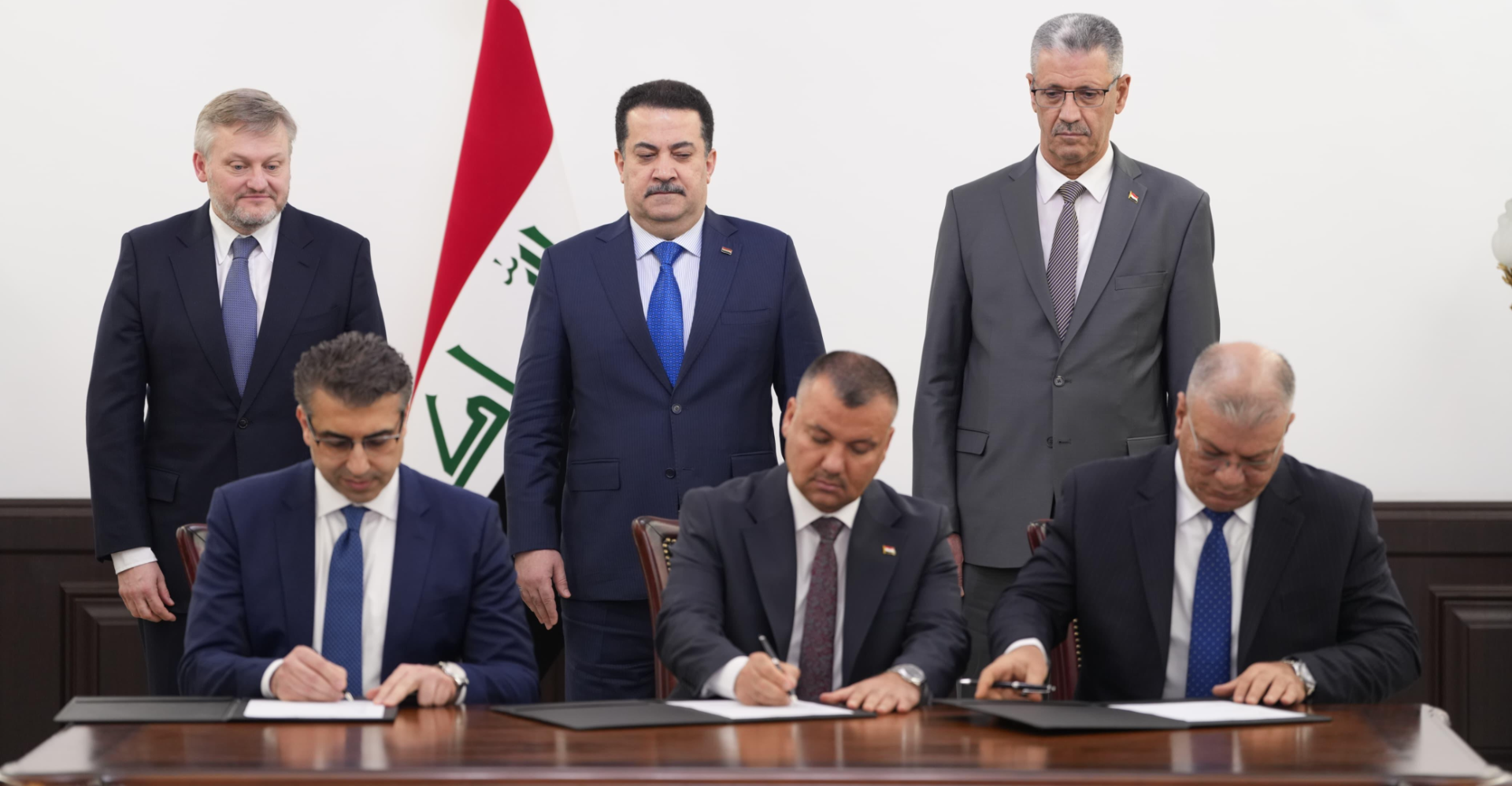In a week of significant developments, Iraq advances its energy infrastructure and economic planning through key international partnerships, domestic policy reforms, and strategic investments aimed at diversifying revenue streams and modernizing national resources.
BP Strikes Major Oil Field Development Contract
The Iraqi government solidified a transformative partnership with British petroleum giant BP, signing a comprehensive contract to rehabilitate and develop four critical oil fields in the Kirkuk region. Executed in the presence of Prime Minister Mohammed Al-Sudani, the agreement targets substantial improvements in hydrocarbon reserves and crude oil production.
The contract’s ambitious scope includes developing the Kirkuk, Bai Hassan, Jambur, and Khabbaz fields with the strategic objective of achieving a peak production rate of 420,000 barrels per day. Beyond crude oil expansion, the agreement encompasses sophisticated infrastructure upgrades, including the enhancement of North Gas Company’s facilities to generate 400 million standard cubic feet of gas daily and establishing a 400-megawatt power plant.
Strengthening Regional Energy Cooperation
Iraq’s Electricity Minister Ziyad Ali Fadhil engaged in pivotal discussions with United Arab Emirates Ambassador Abdullah Matar Al Mazrouei, focusing on potential investment opportunities within Iraq’s electricity and renewable energy sectors. The diplomatic meeting highlighted mutual interests in technological exchange and collaborative development.
Fadhil emphasized Iraq’s commitment to partnering with UAE companies, revealing an imminent contract with Abu Dhabi-based Masdar to construct a substantial 1,000-megawatt solar power plant. The UAE ambassador reciprocated by expressing keen interest in expanding renewable energy collaboration, signaling a promising trajectory for bilateral energy relations.
Financial Planning and Revenue Diversification
The parliamentary Finance Committee convened with Planning Minister Mohammed Tamim to address critical economic challenges, particularly focusing on expanding non-oil revenue streams and revitalizing the Federal Revenue Allocation Authority. Committee Chairman Atwan Al-Atwani highlighted significant discrepancies in non-oil revenue estimations and advocated for legislative amendments to more accurately assess state asset investments.
Al-Atwani warned that project funding delays and halted project listings could precipitate a potential economic crisis. The meeting explored comprehensive proposals to enhance revenue assessment and collection strategies, including discussions on financial provincial entitlements and ongoing project funding mechanisms.
Minister Tamim confirmed the completion of 2025 budget tables, submitted to the cabinet. While the budget does not introduce new projects, it strategically allocates funds for continuing initiatives. The minister also addressed the pending population census, noting that results are prepared but await additional data from the Kurdistan Region.
These multifaceted developments underscore Iraq’s strategic efforts to modernize its economic infrastructure, diversify revenue sources, and forge international partnerships in energy and financial sectors.


